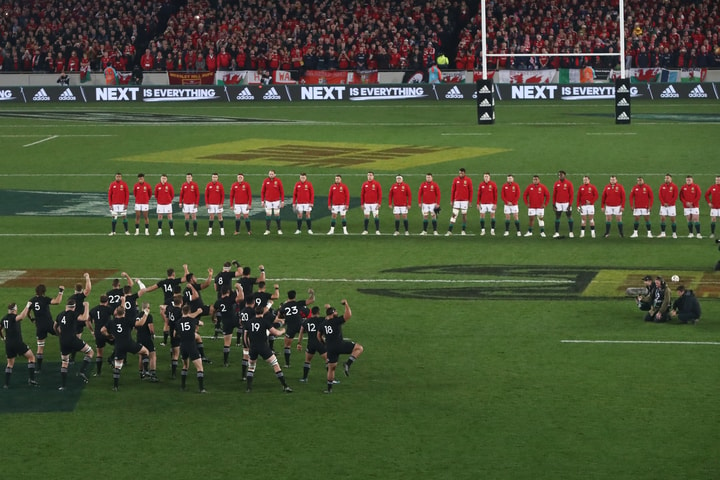The following article is an extract from 'The British & Irish Lions: The Official History 2025 Tour edition'.
1997
MCGEECHAN'S MARVELS
When the Lions boarded their Virgin Atlantic jumbo jet for South Africa with 2.5 tonnes of baggage, no one gave them a cat in hell's chance of winning the three-Test Series. Confident bookmakers were posting odds of 5-1 on them losing every Test. After all, they had won only three of their previous 14 Tests, even though they had won the Series in Australia 2-1 eight years earlier.
The southern hemisphere 'super powers' were simply light years ahead. New Zealand had won the inaugural Rugby World Cup in 1987, Australia had followed them in 1991 and South Africa had taken over as world champions in 1995. The Super 12 and Tri Nations tournaments had given them a huge edge. They played the game at breathtaking pace, tackles and hits were ferocious and their management and administration were far superior. South Africa were confident of a victorious Series, one that would be the perfect warm-up for their 1997 Tri-Nations campaign. They even had a cup made, aptly named the Lion Trophy (after its major sponsor).
The Lions management had anticipated such attitudes and, understanding the task ahead of them, had plotted long and hard in the months preceding the Tour, leaving no stone unturned to ensure the first Tour to South Africa for 17 years would be a winning one. The player selection process involved comprehensive analysis of ability, attitude and fortitude. Fact-finding trips were made to South Africa, including visits to 1996 Tri Nations Tests, and advice was sought from such rugby luminaries as All Blacks coach John Hart.








